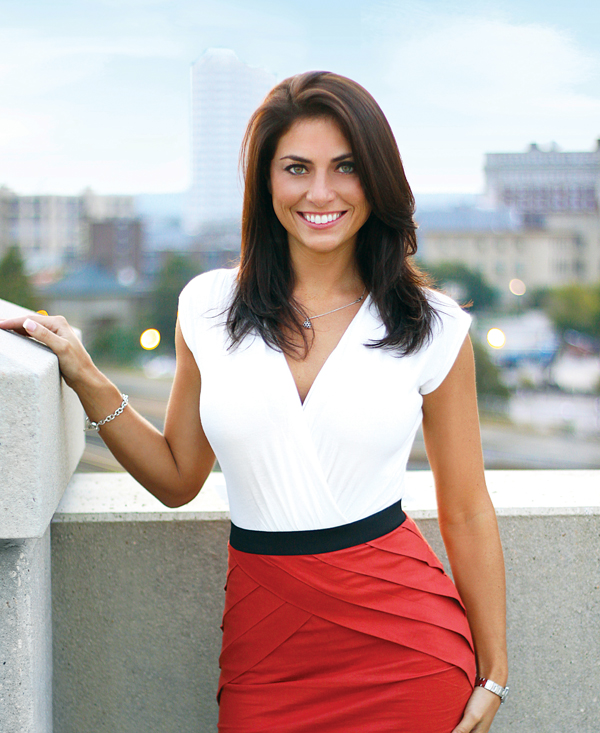Q&A: NESN Red Sox Reporter Jenny Dell

Photo by Justin Hammond
A thing I would not have wished upon my worst enemy was having to interview Bobby Valentine after every Red Sox game last year. That seemed awful.
No, not at all. I think that I was very lucky because I knew Bobby Valentine back in the day when we both worked at ESPN. So, as much as it might not have seemed that way, he actually was always looking out for me. He would definitely take a deep breath before the interview, and then he would give me the answers that he knew, I think, he needed to give. It’s a tough spot for anyone, but it wasn’t as awkward as it might have seemed.
So how do you feel going into your second season with the Red Sox?
It’s completely different. First year, going in, it’s just all the unknowns. I didn’t know all the players and their personalities, I didn’t know my production crew. Going into the second year, you just have so much more confidence in what you’re doing.
Watching last year, you seemed much more comfortable on air by the end of the season.
I think in any job, the longer you’re in it, the more comfortable you’re going to get. So toward the end of the season, when I’d gotten to know [announcers] Don Orsillo and Jerry Remy very well—and we’re all very close now—I think that came through.
Is Jerry as curmudgeonly in real life as he seems on TV?
Jerry has been nothing but wonderful to me—and he’s the one I go to. Especially toward the end of last year, when I was interviewing Bobby Valentine post-game, I’d call out to Jerry and say, “All right, if you were me, what would you ask Bobby Valentine tonight?” And he’d help me out and then he’d call me after the game and be like, “How did it go?”
Is it weird that the people who had this job before you were cult figures in town?
I can start off saying that I looked up to Tina, Hazel, and Heidi. I don’t know if I’ll ever get used to walking down the street and people knowing my name or wanting an autograph. I think that is one of the craziest parts of this job.
Obviously, you want to be taken seriously, but you sideline reporters are all very good-looking, and people tend to fixate on that.
I guess I can understand it to a certain extent. But the important thing is for people to take me seriously as a journalistic reporter, because that’s my job. My old producer, Russ Kenn, said to me at the beginning, You want to make sure people are talking about the content coming out of your mouth and not about what you’re wearing or how you look that day.
Heidi Watney used to do that eating-the-ballpark-food segment.
They shelved that one. They said, “No eating on television.”
Is it possible that, for your predecessors, some of the sideshow stuff sometimes got a little out of hand?
Probably. You need to work every day to be taken seriously. You have to constantly be on the lookout and realize that you’re not “on” only when you’re on television. You’re on when you’re out to dinner with friends, you’re on when you’re going grocery shopping. It’s tough, but in this Boston market, if someone snaps a photo of you at the wrong moment, it could be portrayed as one of those sideshow examples. Whether I’m doing an end-game report or having a drink with a friend, I need to make sure that I’m smart about every decision I make.
So that’s something you think about when you’re just out around town?
One hundred percent. One hundred and ten percent. At all times I think about that. It’s stressful to a certain extent because I went to school at UMass, so all of my college roommates live in Boston. It’s not the same going out on an off-night now as it was when I was in college—and that’s fine. I realize how lucky I am to be in this position. If that’s the case, though, I’d rather just be cautious wherever I am.


